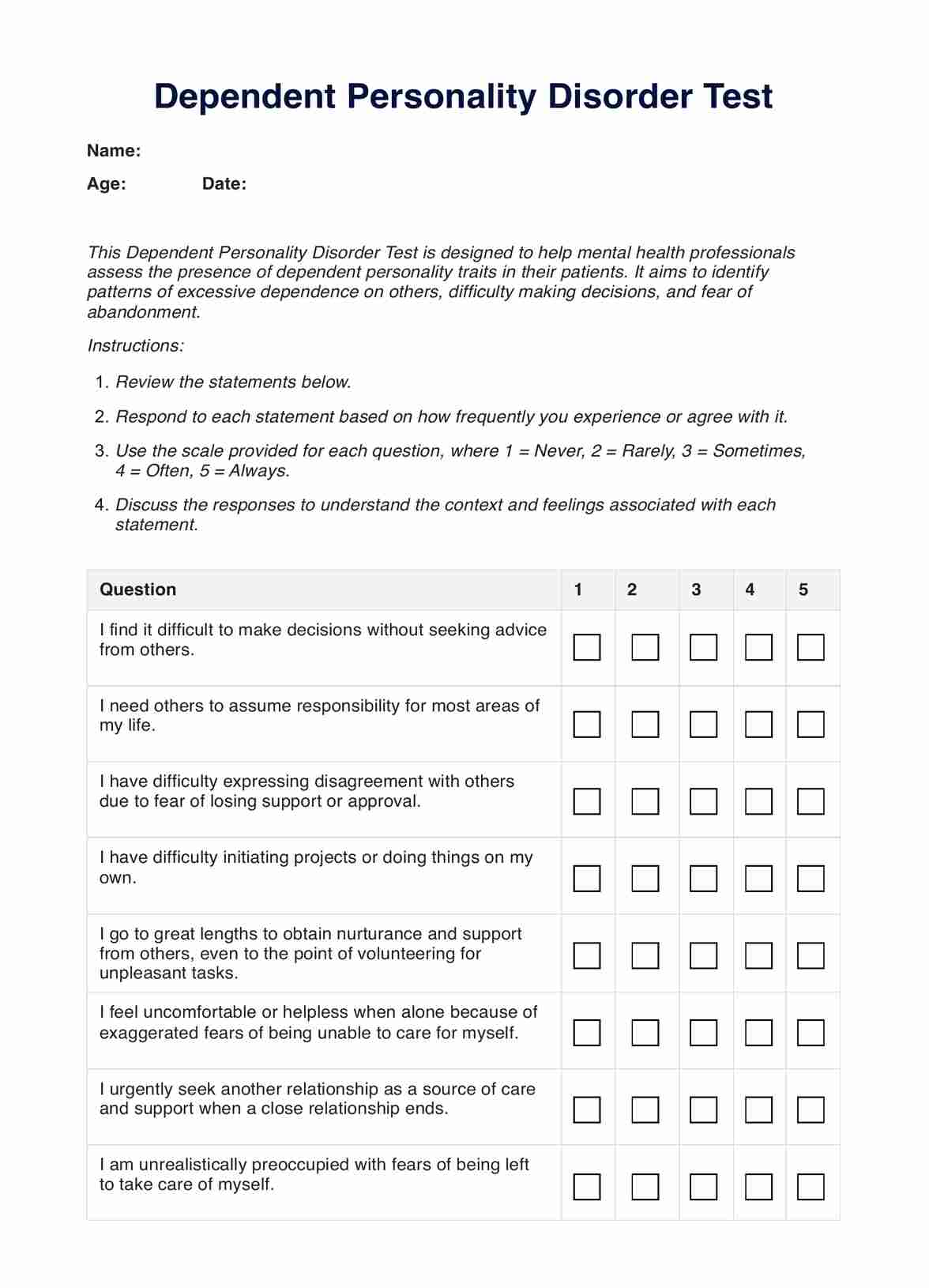Three symptoms of dependent personality disorder include difficulty making everyday decisions without advice from others, needing others to assume responsibility for major life areas, and fear of expressing disagreement due to fear of losing support.

Dependent Personality Disorder Test
Try out our Dependent Personality Disorder Test template, designed to help mental health professionals assess and address dependency traits in patients.
Use Template
Dependent Personality Disorder Test Template
Commonly asked questions
Mental health professionals test for dependent personality disorder through clinical interviews, assessment of diagnostic criteria from the DSM-5, and psychological tests like the Dependent Personality Disorder Test.
Dealing with someone who has dependent personality disorder involves setting clear boundaries, encouraging independence, offering support without enabling dependency, and seeking professional help if needed.
EHR and practice management software
Get started for free
*No credit card required
Free
$0/usd
Unlimited clients
Telehealth
1GB of storage
Client portal text
Automated billing and online payments











